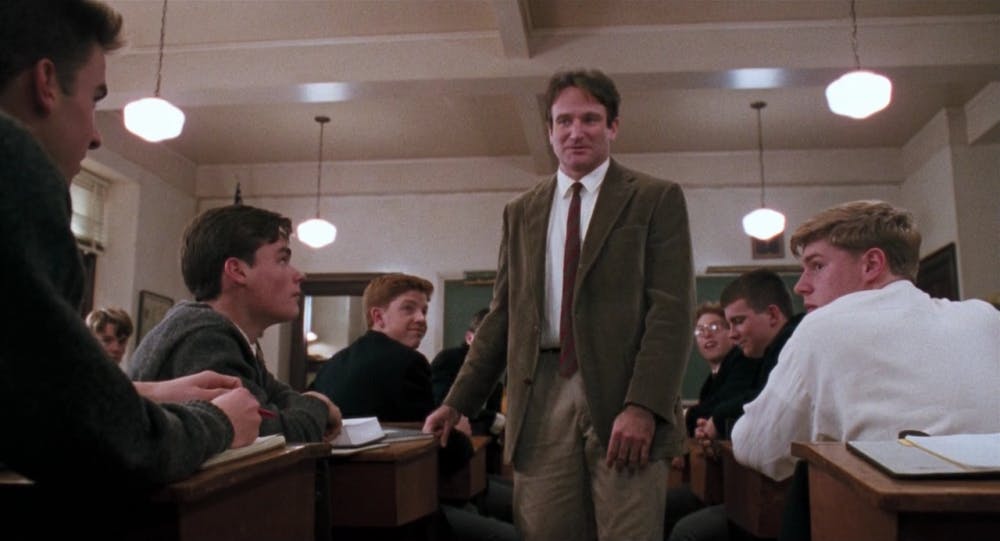“Dead Poets Society” was a film that I watched for the first time at the right time. Superficially, it would seem that the elite (read: fratty) prep boys school set in Vermont in 1959 depicted in Peter Weir’s film has nothing in common with the ordinary New Jersey suburb I grew up in, but many parallels between my life and their gripped me as a sophomore in high school and still resonate with me today.
Todd Anderson, Neil Perry and the other students of Welton Academy endured constraints that seemed very familiar—they lived under a shadow of expectation that was perpetuated by their parents, their education and their high–achieving peers. My parents never said, "We expect great things from you," as Neil’s father says to him, but they might as well have. And once I left home to attend the top university I had worked so hard to get accepted to, I felt just as weighed down by the pressure to do “great things” there.
Perhaps that's why I was immediately captivated by Robin William’s portrayal of John Keating, the unorthodox teacher who opens his pupils' imagination with the power of literature and poetry. It is through Keating that the boys at Welton learn to emerge from under the weight of expectation, and watching Williams's mercilessly subdued performance for the first time I found myself wishing my high school English teachers had been as inspiring.
The film’s tragic conclusion is certainly a tear–jerker, but “Dead Poet’s Society” is altogether incredibly uncynical and hopeful. The dominant themes instilled by William’s Keaton of learning and living purposefully are surprisingly more relevant to me now than when I first saw it in high school. In one of my favorite scenes, Keating ushers his young wide–eyed students out of the classroom and towards a glass display case filled with black–and–white photographs of former Welton boys.
Here, he has them first discuss the Latin adage “Carpe Diem" and urged his pupils to make the most of their lives. As the camera slowly pans from the faces in the photograph to the boys in his class, he says, “They believe they're destined for great things, just like many of you, their eyes are full of hope, just like you…these boys are now fertilizing daffodils. But if you listen real close, you can hear them whisper their legacy to you. Carpe Diem, seize the day boys, make your lives extraordinary." It is a powerful scene, and every time I revisit “Dead Poets Society” I am reminded that time is precious and moved to lead a life of passion and conviction.
Oh captain, my captain, thanks for embodying a character who has provided years of encouragement and inspiration. You are dearly missed.
Check out our other "Living Our Lives in Film" Identity Essays:

